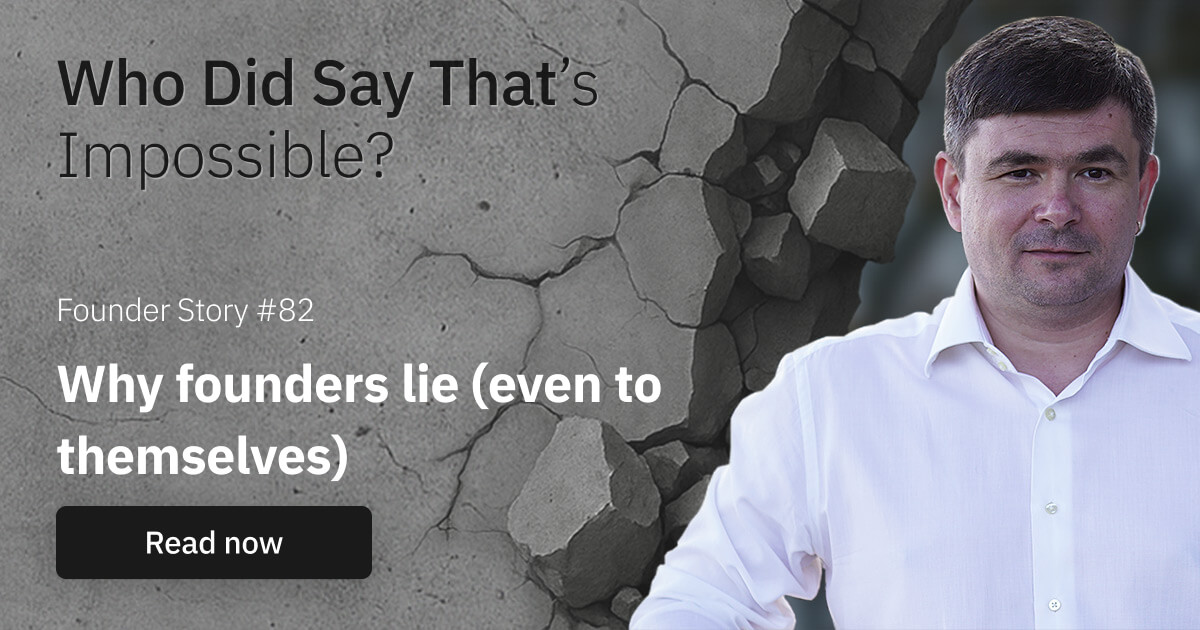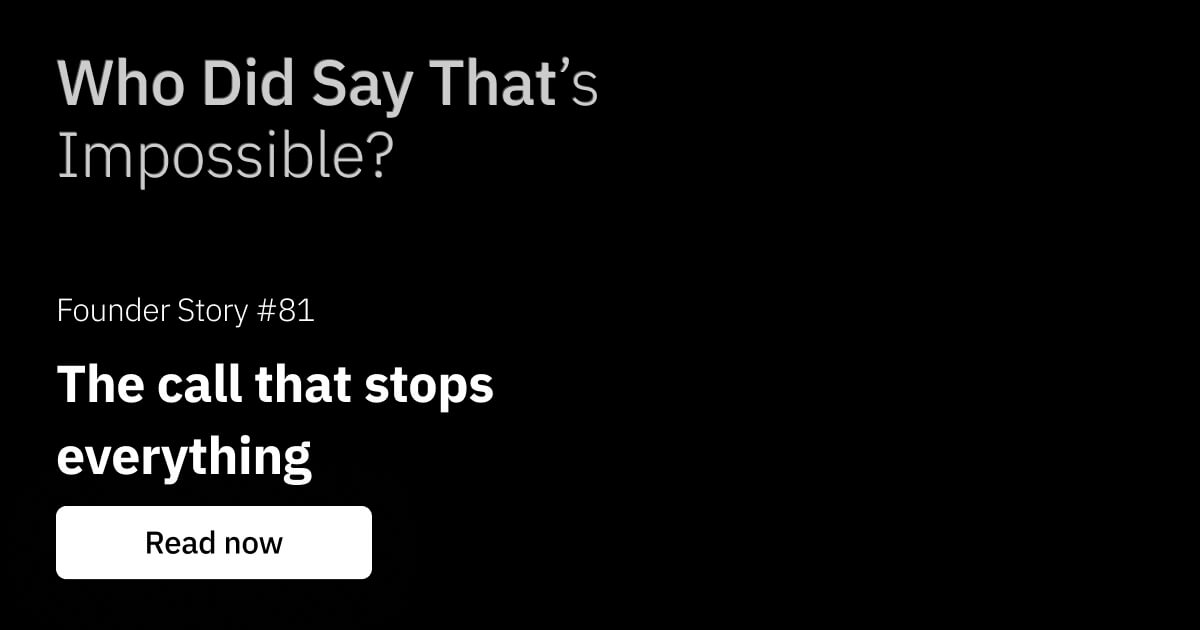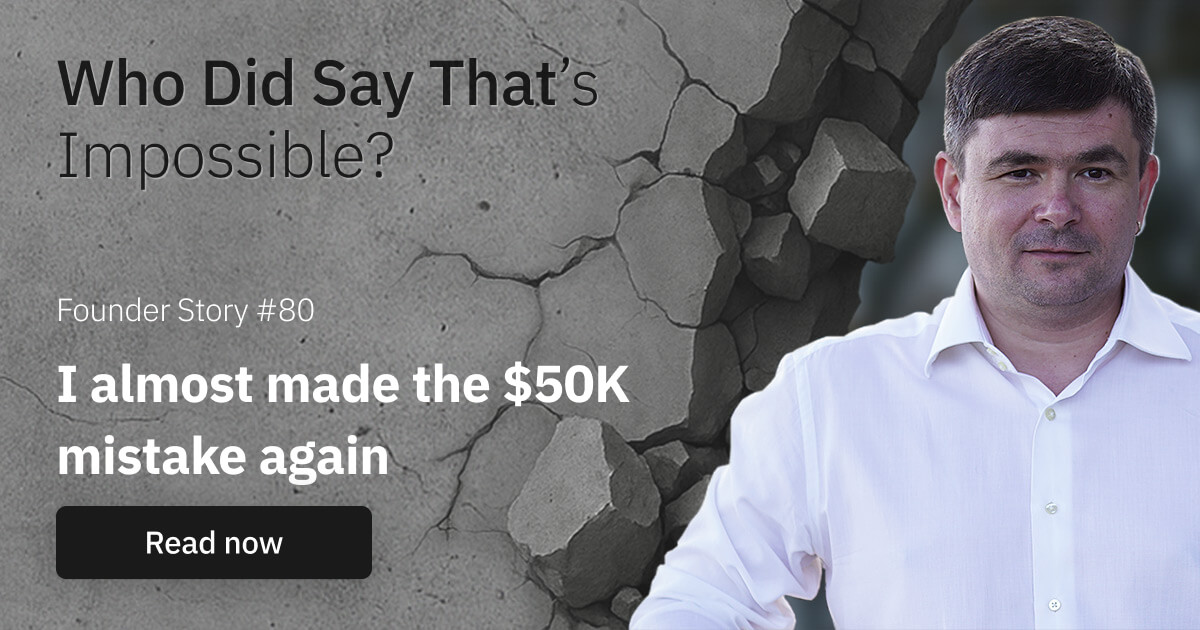The Hidden Cost of “Watch What I Can Do!”
Or a minute of Cold Logic.
How often do you leave the house thinking you might not come back?
We try not to dwell on bad things.
But bad things don’t care what we think.
Accidents, disasters—we always believe it won’t happen to us.
We pay for insurance, thinking that money could be better spent elsewhere.
Sometimes, governments have to step in to protect us from ourselves.
Take seat belts, for example.
Why?
Because we’re wired to believe, “That won’t happen to me.”
Until it does.
Here’s the thing:
In a stressful situation, you fall to the level of your skills.
- Panic kills critical thinking.
- Theoretical knowledge? Useless.
- Only what your hands remember, muscle memory, will work.
And when every second counts, stress and panic can completely shut you down.
In business, disasters happen all the time.
The scale of the disaster depends on the size and type of business.
If you run a manufacturing plant and there’s an accident—that’s one level of disaster.
If it’s a small digital business, the damage is smaller.
But here’s the kicker.
That doesn’t mean something small can’t completely wipe you out.
Small businesses are fragile in their own ways:
- They dodge big company problems.
- But a small ripple for a big company can be a tidal wave for them.
One of the key skills of an entrepreneur?
Risk management. Planning. Forecasting.
Being willing to face the uncomfortable truth about potential problems.
Not giving up, but digging for solutions.
Business is full of risks:
- Market risks.
- Tech failures.
- Human error.
- Counterparty risks.
- Legal and tax risks.
- Risks from poor decisions.
- The "bus factor"—critical dependence on one person.
And that’s far from the full list.
At different stages, risks hit differently.
Some risks you just accept and hope they don’t strike.
But hope isn’t a strategy.
Sometimes it’s just a lack of resources, experience, or knowledge that keeps you from acting.
Still, some risks are better tackled sooner rather than later.
And by the way, one of the biggest sources of risk is the entrepreneur themselves:
- Risk tolerance.
- Business integrity.
- Financial mindset.
- Management skills.
- Attitude toward work.
- Even personal traits like greed or empathy.
The Illusion of "Don’t Think About the Worst"
You’ve probably seen posts saying things like “Forget plan B,” “Go all in,” or “Just follow your instincts!”
It’s a dangerous illusion.
Romantic nonsense, really.
I’ve even heard people claim that thinking about bad outcomes will somehow attract them.
That’s some primitive prehistoric thinking.
When you take a first aid course, you’re not calling for disaster.
It means that if something happens, you’ll be ready.
- You won’t freeze, staring blankly.
- You’ll know how to help yourself and others.
- Because you’ve got the skills and muscle memory.
It’s the same in business.
Facing fears, creating a plan B, and thinking through crisis scenarios is a crucial skill.
It’s like taking a business-first-aid course.
Of course, don’t go overboard.
Not every risk is equally likely or dangerous.
But if you’ve got a plan for when the fire hits, literal or metaphorical, you’ll be able to act fast and avoid disaster.
Business owners must dedicate time and resources to stress-testing:
- From simple “what if?” thinking exercises,
- To full-on drills with the team.
If you’re just starting out and it’s you and an assistant, big simulations won’t help.
But even at the start, you need a basic plan for the most probable and dangerous risks:
- What if there are zero sales for a month?
- What if a key platform your business relies on fails?
- What if a major corporation launches a competing product?
Creating these plans helps develop real strategies and actionable steps.
Most operational risks can be minimized if:
- You have clear systems.
- You have a knowledge base.
- You have effective processes.
Life is risk.
And sure, we can’t stop an asteroid from crashing down.
But you can create a checklist for handling an unhappy client.
And be grateful later for thinking ahead.
Disclaimer.
Every business has its nuances, and every founder has their unique context and resources. Whether or not my advice applies depends on your situation, experience, and needs. But one thing is universal—use your brain.
Think about how to apply the advice in your context before acting.
Your way.
- Eugene
Join the “most offbeat” Businessletter on entrepreneurship.

Hi, I’m Eugene.
20 years later — 80 people, 3 continents, 7-figure revenue.
But for many years, I was the bottleneck in my own business.
Now I help founders escape the same trap. Through systems that actually work, not theory.
I write weekly: operational war stories, decision systems, and lessons learned the hard way.
For founders who want to build without burning out.
More Stories
Founder Stories

Why founders lie (even to themselves)
Or minute of freedom that comes after you exit

The call that stops everything
Or minute of realizing your business isn't ready for this


